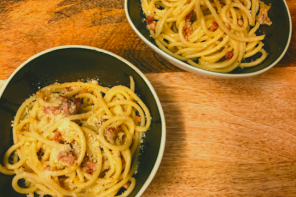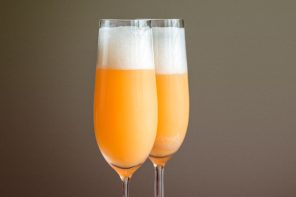You’re not much of a beer drinker, but you happen to be traveling around the Czech Republic – the home of Pilsner – so you think now is better than ever to get a taste of the good ole’ fashioned brew. You ask the waiter for a recommendation, and they pour you a glass of a popular beer. You take a sip and immediately feel all the life sucked out of you. The only thing keeping you from spitting out that first gulp is the risk of sheer embarrassment. This is something a supertaster might experience.
Supertasters live in a world where food and drink are felt more intensely than their average taster and non-taster counterparts. That glass of beer has a very bitter taste which is why it’d be a big no-no for any taste-sensitive person. The answer to why supertasters avoid strong flavors and are particularly averse to bitter food, lies in the tongue. Mother Jones reported, “Tongues are covered with fungiform papillae, mushroom shaped-structures that house our taste buds, and supertasters have a lot more papillae than the average taster.” The greater number of taste buds make it harder to ignore an intense, unpleasant flavor.
To put things in perspective, let’s imagine a supertaster, average taster, and a non-taster drinking a regular cup of coffee. Upon sipping this cup of joe, a supertaster might make a face and claim that the hot drink is unbearable and way too strong. An average taster might taste a little bitterness but would think the flavors in the coffee are pretty balanced. Lastly, a non-taster would claim that the coffee is too bland with no flavor and proceed to add tons of sugar. There’s one common thread throughout this scenario. This is the power of perception and how the number of taste buds ultimately controls the way these people experience food and drink.
Suppose you get curious and conduct the supertaster experiment and learn that you have hyper-tasting abilities. Does this mean you find every bitter food on the face of the earth unsettling? No, that’s definitely not the case. It is true that being a supertaster is a part of your genetic makeup, but affinities can be acquired toward strong flavors from exposure over time. This explains why some taste-sensitive people regularly enjoy strong flavors and bitter tasting foods. The way a person grows and develops can inform their reaction to food and drink as adults. So don’t be surprised if your roommate, who can detect the most subtle note of apricot and peaches in a glass of wine, is an average taster. They most likely experimented with different types of wine and have developed a more sophisticated palate over time. When it comes down to it, nurture has some serious power over nature in molding your eating habits, supertaster or not.
Do these abilities sound familiar to you? Don’t get too excited just yet. Roughly only 25 percent of people are supertasters, 25 percent are non-tasters and the other 50 percent are average tasters, so these abilities could just be in your head. Although it sounds like a superpower, supertasting can serve as a burden by keeping someone from exploring various culinary options this world has to offer. However, being a supertaster isn’t all bad. If you do have supertasting abilities, you can use them to discover more about the world of wine! Who knows, you might even decide to become a sommelier one day. Either way, one thing’s for certain: taste is definitely in the “mouth” of the beholder.








